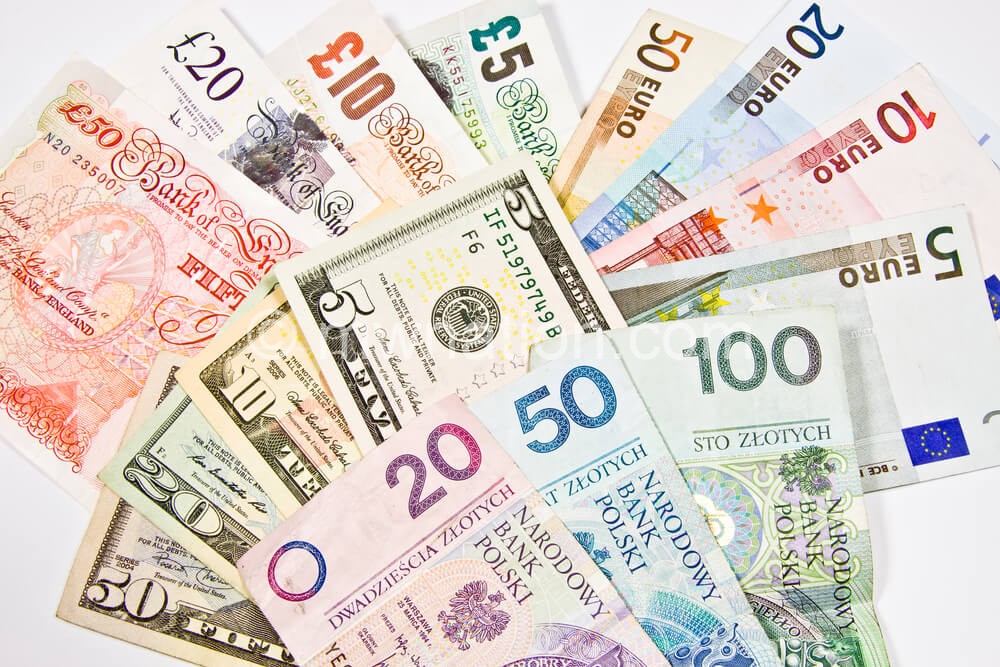Why forex is scarce
Details have emerged that the prevailing foreign currency shortage is due to an abrupt decision by former governing Democratic Progressive Party (DPP) administration to terminate currency swap deals with African Export-Import Bank (Afreximbank).
The Nation has also established that the Malawi kwacha stability in recent years was due to accumulation of foreign exchange reserves from the swap deals rolled over annually before the termination last June.

In the face of the comfortable reservoir of foreign currency sourced through the swap deals, the Reserve Bank of Malawi (RBM) was able to easily intervene on the market and pay for key imports such as fertiliser and fuel import bills, sources have confided.
Financial market analysts and sources at RBM have further confided that the currency swap deal created an impression that Malawi had a healthy foreign exchange reserve over the years when, in fact, it was all cosmetic.
The Nation findings show that RBM entered into a “direct note purchase facilities” programme with Afreximbank in June 2020 worth $350 million and $100 million.
This transaction was facilitated through a currency swap where an equivalent of $450 million in the local currency was given to the Afreximbank before turning the swap into a note programme last year.
By converting the swap into the five-year note programme, it meant that RBM has an obligation to pay back Afreximbank $450 million in foreign currency in tranches; hence, creating significant outflows from the foreign exchange market.
In an interview last week, Financial Market Dealers Association (Fimda) said the current foreign exchange shortage highlights Malawi’s obsession with short-term solutions to the country’s structural foreign exchange supply and demand.
While acknowledging that foreign exchange swaps in themselves are not bad instruments, Fimda faulted authorities for using such short-term measures as substitutes for long-term strategies to address structural problems.
In a currency swap transaction, two parties exchange an equivalent amount of money with each other, but in different currencies. The parties are essentially loaning each other money and agree to repay the amounts at a specified date and spot rate or exchange rate at that particular day of repayment.
Our investigation reveal that in June last year, the previous administration, through RBM, terminated the $450 million (K350 billion) swap deal which was running from the past few years and provided more cushion and relief to the foreign exchange market.
An analysis of the notes to the balance sheet show that between January and March this year, the Malawi Government repaid Afreximbank K27 billion in foreign currency or about $33 million and is expected to make another payment of K82 billion or $107 million for the period April to December 2021.
The document also shows that from January 2022 up to the five-year mark, Malawi is obligated to repay Afreximbank K241 billion (about $310 million), totalling $450 million which the country took from the bank.
The swap in itself does not appear on the balance sheet. In proper accounting framework, it is called an off-balance item. However, a note programme does appear as it is a liability.
The RBM balance sheet shows that between 2019 and 2020, foreign assets declined from roughly $1 trillion to $750 billion while foreign liabilities increased from $901 billion to $1.429 trillion.
Main contributing factors to the increase in the liabilities position were the new $450 million borrowing from Afreximbank and about $190 million from the International Monetary Fund (IMF).
In May 2020, IMF approved $91 million to Malawi under the Rapid Credit Facility (RCF) and later in October the same year the fund disbursed another $101.96 million under the same facility to help fund the country’s balance of payments (BoP) deficit worsened by the Covid-19 pandemic.
A Lilongwe-based financial analysts conversant with operations of the central bank said the situation indicates that while Malawi’s foreign liabilities increased significantly, foreign assets took a sharp dive.
The analyst said: “The key question is how did we deploy these resources to ensure productivity that should create a capacity for us to repay these huge liabilities? Looking at the balance sheet and the shrinking foreign assets will indicate that these resources were not invested in liquid assets that would earn a return to enable easy repayment at a future date.”
In a written response to a questionnaire, RBM spokesperson Onelie Nkuna, while avoiding to directly comment on the currency swap deals, admitted that foreign liabilities for the country grew substantially as of end December 2020.
She said: “The increase was partly due to the credit from IMF under RCF in response to the adverse effects of Covid-19 pandemic.”
But economist Bond Mtembezeka, who is also a financial market researcher, agreed with our analysis, stressing that it is now clear that RBM was keeping the exchange rate stable over the years through currency swaps which gave it the ability to intervene in the market and pay for other supplies with the swaps.
He said: “The problem with using currency swaps to manage an exchange rate is that it artificially holds a currency for so long because swaps are temporary instruments.
“The dynamics behind the present magnitude of depreciation are twofold: In real terms, we don’t have enough foreign exchange currency. Secondly, the currency was artificially held for so long without recourse to other measures to ably support in the medium to long-term so when it began to slide, all hell broke loose.”
Fimda president McLewen Sikwese agreed with Mtembezeka that the manipulation of the foreign exchange market dynamics only works for a short-term.
He said: “We are usually taking measures that make us cosmetically look good in the short-term while putting medium to long-term sustainability in jeopardy. This artificial stability breeds increased demand for foreign exchange and eventually the supply and demand imbalance does lead to a depreciating currency we are currently witnessing.”
Sikwese said deployment of resources from swaps become critical when such resources are prioritised towards enabling sectors anchoring the country’s long-term foreign exchange generating strategies rather than consumptive sectors.
Official gross reserves as directly controlled by RBM hit $790.28 million by January 31 2019 or an equivalent of 3.78 months of import cover, according to the Financial Market Development Report dated March 2019.
However, the reserves dropped to $402 million (1.9 months of import cover) at the end of the first quarter in 2021 compared to $565.5 million (2.7 months of imports) at the end of the preceding quarter and $773.2 million (or 3.7 months of import cover) at the end of the first quarter in 2020.
Import cover refers to the number of months a country can seamlessly import goods and services using the accumulated international reserves.
Gross official reserves is usually distinguished from private sector reserves which are under the direct control of authorised dealer banks (ADBs) which comprise ADBs’ own forex positions and foreign currency denominated accounts balances of their clients.
Our investigation into the forex swap deals was also corroborated by the recently released RBM forensic audit report which revealed that the central bank issued two Treasury notes in June 2020 valued at $350 million and $100 million. The auditors described the issuance of the same as “unjustifiable”.
Reads the audit report in part: “The timing of the $350 million and $100 million treasury notes on 26 June 2020 and 30 June 2020 appear unjustifiable given that the term sheet for these transactions had been accepted by RBM in April 2020, as such RBM was aware of the need to undergo a restructuring as at that time.”
At the termination of the swap transaction between RBM and Afreximbank for custodial services and for the termination of the foreign swap transaction, FDH Bank plc was paid K4.3 billion (about $6 million) in compensation.
Cumulatively, the report says a total of $769 million was used by RBM in market interventions and the resources were channelled through FDH Bank which handled 40 percent and 48 percent foreign exchange sales in 2020 and 2019.
The Nation understands that RBM has had several other currency swap deals with other local banks besides FDH Bank plc.
When asked to comment on the currency swap deals as revealed by the forensic audit report, Nkuna said: “With regard to issues relating to forensic report, unfortunately the bank is unable to make any comment since the issue is with law enforcers.”
Compounding the situation on the foreign exchange market is the shrinking trajectory of other sources of foreign exchange for Malawi such as donor support, remittances and export receipts as a result of Covid-19 pandemic.
Remittances alone shrunk by 26 percent in 2020, according to the World Bank and the rate is one of the worst in history.
Nkuna said Malawi’s exports declined by 16 percent to $0.9 billion in 2020, adding that imports similarly dropped by four percent to $2.7 billion in 2020. Consequently, she said the country’s trade gap worsened by 3 percent to a deficit of $1.8 billion.
She said: “The unfavourable developments in trade balance have resulted in imbalances on the foreign exchange market which has compelled RBM to intervene on the market to manage excessive volatilities so as to limit disruptions to economic activity.
“Consequently, the currency has depreciated in an orderly fashion and not excessive and disruptive. You might wish to note that though the currency has depreciated, it has been very gradual and modest since December 2020.
“It is, however, unfortunate that the business community has taken advantage of this and has increased prices way more than the depreciation and this is uncalled for.”
Ministry of Finance spokesperson Williams Banda was yet to respond to our questionnaire on the matter as we went to press.
In its 13th edition of the Malawi Economic Monitor, the World Bank said the flexibility of the kwacha has increased while reserves keep declining.
Said the World Bank: “Official foreign exchange reserves have been affected by low inflows during the pandemic with RBM only intervening with exchange rate sales. As such, its official gross reserves have declined over the year to $414.4 million as of end-May, around 1.7 months of import cover.
DPP spokesperson on Finance in Parliament and former minister of finance Joseph Mwanamvekha was not immediately available for comment.





